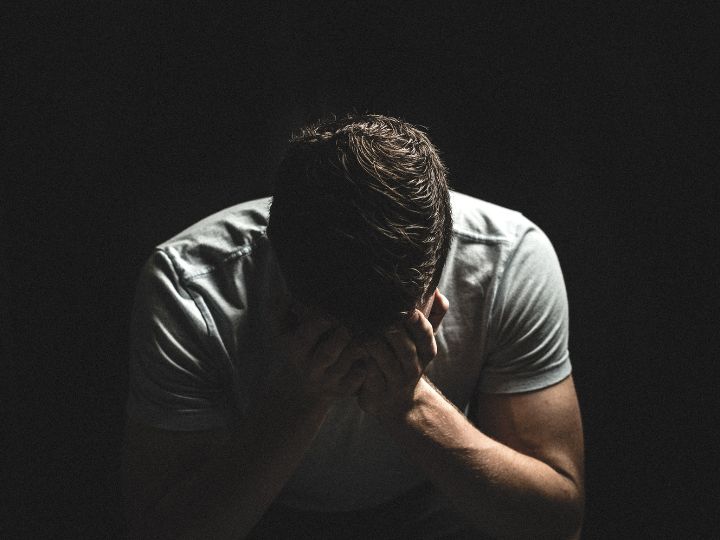The Psychological Impact of Gynecomastia
Studies and psychological inquiries consistently show that gynecomastia, a condition characterized by the non-cancerous enlargement of glandular breast tissue in men, can significantly affect self-esteem. This is linked to societal and personal perceptions of individuals with abnormal growth conditions caused by altered hormone levels. Currently, approximately two-thirds of the male population worldwide is affected by gynecomastia, with about 10% of these cases being permanent.

Gynecomastia’s Impact on Self-Esteem and Mental Health
Gynecomastia alters the typical body structure in men, leading to a female-like appearance of the male chest. This prominent physical change can have a detrimental effect on the quality of life and mental health of those affected. The condition can lead to a lack of self-esteem and make the individual a target of ridicule.

Evidence-Based Research on Gynecomastia and Self-Esteem
The development of glandular tissue in men often triggers anxiety. Patients frequently express uncertainty about the diagnosis and potential treatments. They may also worry about the possibility of developing male breast cancer. A study in Breast Care highlighted that anxiety is heightened in patients with additional medical conditions, personal traits of anxiety, or a higher education level.

Gynecomastia Leading to Low Self-Esteem
Men with gynecomastia often experience dissatisfaction with their body form and social phobia. A study in the Journal of Plastic and Reconstructive Surgery indicated that these men have higher levels of social phobia and lower self-esteem compared to the general population. Psychotherapy is often recommended as part of the management and post-operative care for these patients.
Confusion Over Sexual Identity
This condition can also lead to confusion over sexual identity, as the development of glandular tissue is typically associated with females. A survey in Cancer Nursing (2007) found that 43% of men would question their masculinity if they developed gynecomastia or male breast cancer. In some cultures, gynecomastia is viewed as a stigma or curse, further complicating the individual’s psychological state.
Depression Associated with Gynecomastia
Depression is often the most severe psychological issue linked to gynecomastia. The combination of disturbed sexual identity, unresolved anxiety, and poor body image can lead to severe depression and even suicidal tendencies. Men with gynecomastia tend to conceal their condition and feel uneasy about seeking help, unlike women with breast cancer who generally are more open to seeking support and therapy.

Social Isolation Due to Gynecomastia Individual
s with gynecomastia often experience social isolation, feeling marginalized within society. This leads to feelings of humiliation, embarrassment, and withdrawal from social activities. The severity of this isolation can vary, but it is more pronounced in young adults who develop gynecomastia during puberty. They may avoid interactions with family and friends to hide their condition, leading to a pattern of vulnerability and distrust. Research confirms that social isolation is more significant in young adults with gynecomastia compared to older adults who may have come to terms with their condition.
Gynecomastia and Disordered Eating
The condition can also lead to disordered eating behaviors, commonly referred to as ‘Manorexia.’ This psychological condition has seen a significant increase in incidence over the past decade among gynecomastia patients. The emotional distress and social isolation experienced by these individuals often lead them to perceive weight loss as a solution to reducing breast size. This can result in extreme dieting and disordered eating patterns. Managing this requires carefully designed psychotherapy sessions.
Conclusion: The Need for Gynecomastia Treatment
The psychological impact of gynecomastia can potentially lead to severe mental health issues and even suicidal ideation in extreme cases. A comprehensive treatment plan, including psychotherapy and surgical intervention with a board certified gynecomastia surgeon may be recommended for the best outcome.
Related Post: I
Studies and psychological inquiries consistently show that gynecomastia, a condition characterized by the non-cancerous enlargement of glandular breast tissue in men, can significantly affect self-esteem. This is linked to societal and personal perceptions of individuals with abnormal growth conditions caused by altered hormone levels. Currently, approximately two-thirds of the male population worldwide is affected by gynecomastia, with about 10% of these cases being permanent.

Gynecomastia’s Impact on Self-Esteem and Mental Health
Gynecomastia alters the typical body structure in men, leading to a female-like appearance of the male chest. This prominent physical change can have a detrimental effect on the quality of life and mental health of those affected. The condition can lead to a lack of self-esteem and make the individual a target of ridicule.
Evidence-Based Research on Gynecomastia and Self-Esteem
The development of glandular tissue in men often triggers anxiety. Patients frequently express uncertainty about the diagnosis and potential treatments. They may also worry about the possibility of developing male breast cancer. A study in Breast Care highlighted that anxiety is heightened in patients with additional medical conditions, personal traits of anxiety, or a higher education level.

Gynecomastia Leading to Low Self-Esteem
Men with gynecomastia often experience dissatisfaction with their body form and social phobia. A study in the Journal of Plastic and Reconstructive Surgery indicated that these men have higher levels of social phobia and lower self-esteem compared to the general population. Psychotherapy is often recommended as part of the management and post-operative care for these patients.
Confusion Over Sexual Identity
This condition can also lead to confusion over sexual identity, as the development of glandular tissue is typically associated with females. A survey in Cancer Nursing (2007) found that 43% of men would question their masculinity if they developed gynecomastia or male breast cancer. In some cultures, gynecomastia is viewed as a stigma or curse, further complicating the individual’s psychological state.
Depression Associated with Gynecomastia
Depression is often the most severe psychological issue linked to gynecomastia. The combination of disturbed sexual identity, unresolved anxiety, and poor body image can lead to severe depression and even suicidal tendencies. Men with gynecomastia tend to conceal their condition and feel uneasy about seeking help, unlike women with breast cancer who generally are more open to seeking support and therapy.

Social Isolation Due to Gynecomastia Individual
s with gynecomastia often experience social isolation, feeling marginalized within society. This leads to feelings of humiliation, embarrassment, and withdrawal from social activities. The severity of this isolation can vary, but it is more pronounced in young adults who develop gynecomastia during puberty. They may avoid interactions with family and friends to hide their condition, leading to a pattern of vulnerability and distrust. Research confirms that social isolation is more significant in young adults with gynecomastia compared to older adults who may have come to terms with their condition.
Gynecomastia and Disordered Eating
The condition can also lead to disordered eating behaviors, commonly referred to as ‘Manorexia.’ This psychological condition has seen a significant increase in incidence over the past decade among gynecomastia patients. The emotional distress and social isolation experienced by these individuals often lead them to perceive weight loss as a solution to reducing breast size. This can result in extreme dieting and disordered eating patterns. Managing this requires carefully designed psychotherapy sessions.
Conclusion: The Need for Comprehensive Treatment
The psychological impact of gynecomastia can potentially lead to severe mental health issues and even suicidal ideation in extreme cases. A comprehensive treatment plan, including psychotherapy and surgical intervention with a board certified gynecomastia surgeon may be recommended for the best outcome.
Related Post: Is Gynecomastia Surgery Covered by Insurance?
What Is Gynecomastia? ↗
An in-depth guide to gynecomastia causes, symptoms and treatment options.
45-minute gynecomastia treatment ChestSculpt® exclusively at XSculpt™
How Much Does Gynecomastia Surgery Cost? ↗
Learn more about pricing for gynecomastia treatment.
Gynecomastia Before & After Gallery ↗
See before and after photos of gynecomastia patients.

GET YOUR COMPLIMENTARY ANALYSIS AND CONSULTATION TODAY
XSCULPT was founded by two award-winning board-certified surgeons Dr. Marc Adajar & Dr. Anh-Tuan Truong. Our practice specializes in body contouring procedures, including Gynecomastia (Male Breast Reduction), Abdominal Etching, Lipo 360, Vaser Hi Definition Liposuction, Male Puffy Nipple Reduction, Male Tummy Tuck, and Non-Surgical Fat Reduction. Medical services include Hormone & Testosterone Replacement Therapy, Anti-Aging, Peptide Therapy and Medical Weight Loss.
